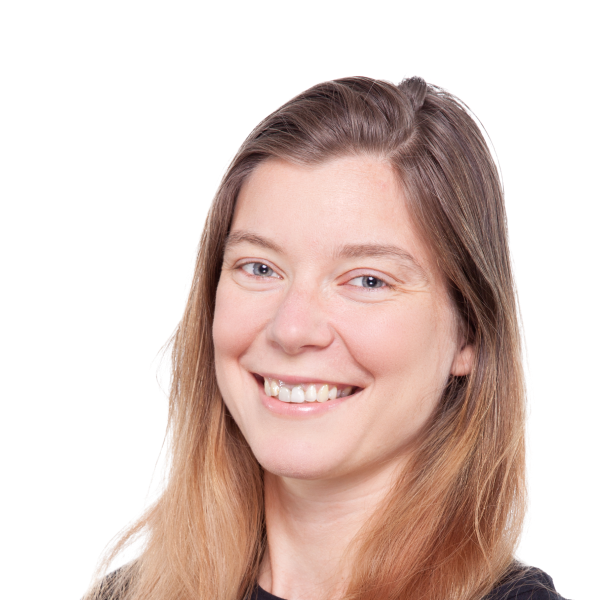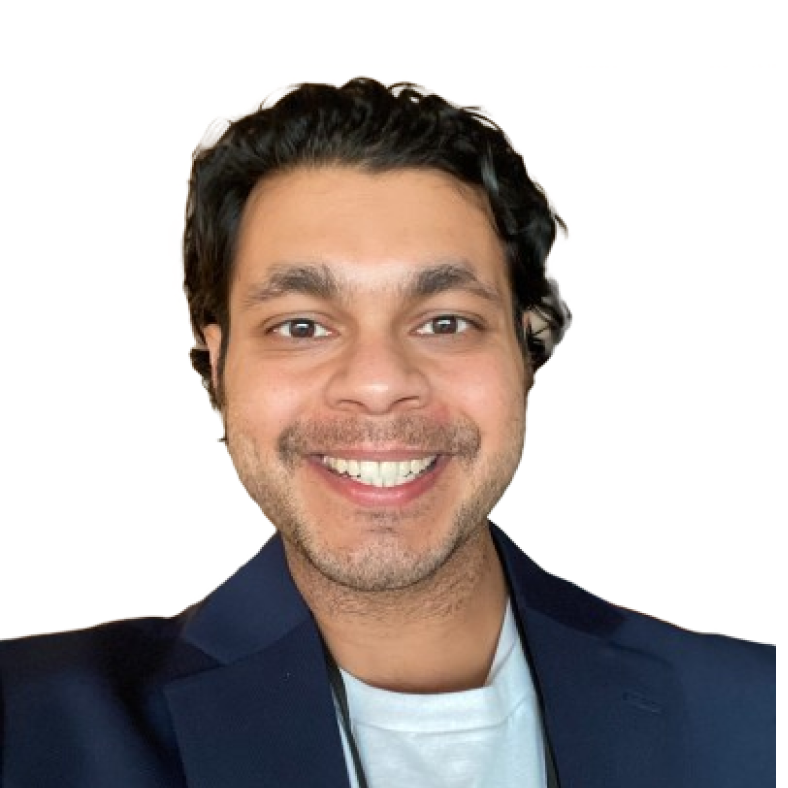

Meghan Gill, SVP of SalesOps and Sales Development at MongoDB, joins Tracy Young to discuss her early influences and the adaptation needed to thrive across the journey from startup to IPO.
Meghan shares her background, including growing up in Flushing, Queens, with a teacher mother and an entrepreneur father, which inspired her to join startups, including MongoDB as one of its early employees. Her parents initially questioned her decision to join a small company but eventually supported her, especially when MongoDB went public.
Meghan discusses her role at MongoDB, her transition from marketing to sales operations, and the importance of adaptability and learning in her career. She highlights MongoDB's evolution, including its IPO and shift towards a cloud and consumption-based business model. Meghan emphasizes the value of humility, continuous learning, and resilience in facing career challenges.
The conversation also touches on effective collaboration between marketing and sales, the significance of recruiting and developing the right talent, and the challenges of balancing a demanding career with motherhood. Meghan and Tracy share insights on building a supportive work environment, especially for working parents, and the potential impact of remote and hybrid work models.
Meghan reflects on a personal setback in sixth grade that shifted her mindset towards growth and resilience, underscoring the importance of facing adversity. She also discusses MongoDB's future, especially in enabling AI applications, and the interview concludes with a mutual appreciation for women's representation in leadership and entrepreneurship.
Podcast Transcript
Tracy (00:00)
Hello and welcome to Path to Growth, conversations with leaders on Go-To-Market. I'm your host, Tracy Young, co-founder and CEO of TigerEye Today's guest on the podcast is Meghan Gill, SVP of SalesOps and Sales Development at MongoDB. Meghan, thanks so much for joining us.
Meghan (00:16)
Thank you for having me.
Tracy (00:19)
So tell me about mom and dad. Tell me about where you grew up and what you learned from them.
Meghan (00:24)
I guess we're going straight to the start, I guess. Sure, so I grew up in Flushing, Queens. Most people know Flushing, Queens from the nanny. So that's where I grew up. And my mom was a teacher. She's retired now. She was a kindergarten teacher, which I have three kids that are five, four, and one and a half. So having a mom, a grandma who is a former teacher is pretty amazing right now, I have to say.
And then my dad was, he was an entrepreneur. He never had a quote unquote real job. He was actually a wedding photographer. He had a studio and then over time, he started making his own, I know this is like very much dating things. He was making his own prints and then he ended up transitioning into business where he made prints for other professional photographers. So it was a small business and that, I think that's one of the things that always inspired me to want to go.
work at an early stage startup. And it's kind of funny because my parents were a little bit resistant. My dad was like, hey, I did the whole entrepreneurship thing. So you could go to college and get like a quote unquote real job. And I ended up joining this less than 10 person company with VC funding in 2009. So 14 years ago called MongoDB. And they were certainly questioning my decision. But as they saw the company grow,
they really understood why I made the decision that I did. And in fact, when MongoDB went public, my dad bought stock in the company and he never sold it. I mean, yeah, exactly. So I kept telling him, like, you should cash out. He's like, no, I wanna own a piece of this. So I think it's a pretty amazing story.
Tracy (02:12)
I mean, that's a dad that believes in his daughter, you know? There's no better signal than that. It's really sweet, thanks for sharing that.
Tell me about the experiences in your youth living in that house with like your mom and dad and how it shaped the person you have become today.
Meghan (02:35)
It's a good question. I've definitely thought about this a lot, because I had two sort of quite different parents, right? Like my mom was a teacher. She was an academic, right? She had gotten a master's degree. She had put herself through college and beyond. And whereas my dad never went to college, he was not really much of a student, but had a lot of success and found success in other ways. And so I think I had two.
quite different perspectives. And I'd like to think I somehow took the best of both, right? I did go to college and really tried to achieve academically, but I also realized it's not just about academics, right? It's about being able to get stuff done.
Tracy (03:26)
Yeah, just working incredibly hard and paving your own path. So tell me about your current role. You've been at MongoDB for over 14 years. I believe you were employee number eight. So you have seen, I mean, that's a lifetime ago. You grew up at MongoDB. You spent most of your adult working years there. Tell me about your current role.
Meghan (03:45)
Yeah. I like to tell everyone I do.
Yeah, I tell everyone I joined when I was nine. So, you know, I was just a very ambitious nine-year-old when I joined. Aw, that's a joke. So when I joined, I joined when we were less than 10 people. And the way I ended up at MongoDB, I went to Brown. I think I really wanted to do something entrepreneurial, but like I said, I had this sort of.
pressure from my parents, I don't want to blame them for it, but like I felt like I needed to go get a real job. So I went to get a real job at a big company and a finance company and I was like, this is not for me. I don't want to be a cog in the wheel. And so I had a friend from college named Elliot Horowitz, who's the founder of MongoDB and has since gone on and found another company called Viya all around robotics. And I asked him for advice. I wasn't asking him for a job. I was like, hey, how do I break up into the startup world? And he was like, well, why don't you come work at my company? And I was like,
I have no idea what this is. I'm not an engineer. And this is a product. MongoDB is a product. It's for developers. And I didn't have any sort of insight into that world. But it's like, ah, you're smart. You'll figure it out. And so I joined the company. And I really did everything. It was all engineers. So everything from managing the office to HR and marketing, I set up our sales force for the first time.
And over time, I really got more and more focused on marketing. I really liked working with developers and I liked, you know, I liked all of the sort of developer relations part of, of the things I was doing. So I focused on that over time. I built a team. I ended up running with demand gen field marketing. And probably about seven years into that journey, I was kind of on a path like, Hey, it looks like my next job would be like a VP of marketing, but I'm not sure that's, that's what I want to do.
What if I wanted to be a COO or run a software company or something like that? And so our CEO at the time, who's still our CEO, our CEO and our CRO at the time approached me and said, well, look, if you really want to know, go to market, you already know marketing, you need to learn sales. So come run sales operations. This was a little bit right before the IPO. So I took over sales ops right before the IPO. And it's been a really
cool journey because, you know, when we went public, you know, our cloud business Atlas was like a very small portion of our revenue, but growing really fast. We were primarily selling our on-prem product among going to be enterprise advanced. And so we went public with, I don't want to say like a very simple go to market. And over time, we had to really evolve it, reorient the whole Salesforce towards first towards Atlas and then towards consumption.
which is really interesting to me because there's very few consumption oriented companies. It's obviously there's more and more and it's a trend that the market is going towards. But and all of that happened, all of that transformation happened post going public. So it's been a really interesting journey. Some people ask me like, why would I say why have I stayed so long? It's like, well, there's just been so much interesting stuff to do at a company that's, you know, this fast growing, this dynamic.
Tracy (07:05)
Yeah, it's, I mean, there's several things that are, um, really surprising and inspiring for me. One is that it sounds like every role you've had at MongoDB, you've just had to figure it out. It was your first time doing that role, excelling at it, having an incredible trajectory. What advice do you have for someone who is like, you know, getting Battlefield promoted into a role?
They are by no means experts or domain experts in the area they're now leading. Like, how do you succeed when you haven't done the job before?
Meghan (07:42)
Yeah. I mean, I remember, I remember when I took over sales ops, I had, I'd never seen a comp plan before, which is just like crazy for me to think of because I spend all my time looking at comp plans and say, somebody handed me this like Excel model and I think I was in tears. I was like, I, this is like the most complex. It was like, you know, it was a really complicated, like particular role or whatever, and I, I was trying to like,
like interpret all of the like, you know, complicated Excel statements in it. I'm like, I can't do this job. Um, and, um, so I guess one thing I would say is, you know, um, uh, if you've been battlefield promoted, you've been battlefield promoted for a reason and it's because of your capacity to learn. And, um, you don't have to know every single thing, but you have to acknowledge and be a little bit humble and realize that you don't know everything when you walk into a new role.
And for me, it's been all about like sucking up as much information as I can. And it's not just sucking up information from people at the company, but reading, going to conferences, talking to peers, like finding people at peer companies to understand what they're doing and just always being a student and always trying to find time to, um, uh, to learn how others are approaching things and bringing the best bits of that back, back to the company. So, um, I would say being humble and just constantly learning. I, for me, I mean,
I've seen lots of people go through, join MongoDB at different stages, and not everybody is suited to each stage. And so I feel like it's definitely humbled me to see somebody who's amazing at maybe the early stages, not necessarily be the right fit or succeed at a later stage. And that's definitely kept me humble. Like, hey, any moment, you know, every moment I'm at MongoDB, I realize I'm in the biggest job I've ever had. So I got to like take stock of that. Like,
I have to sort of constantly be learning if I'm going to continue to be effective and be in this role.
Tracy (09:38)
Yeah, it's one of the most heartbreaking things about being at a startup, and especially as a founder leading it, is the people that you've gone to war with in the last five years might not be the right people that you continue to go to war with in the next five years just because they've hit a wall in terms of scale. And then especially for founders who are doing it for the first time, like I'm learning in the job, so not everyone around me can be learning in the job too, or else, you know, there's a lot of risk there. And...
But you've done it. And so tell me about, I don't know, maybe you want to just like split the 14 years in half, it's like early stage and later stage or however you want to bucket the years at MongoDB, the chapters at MongoDB. If you can share some of the early, early years versus, you know, MongoDB now.
Meghan (10:29)
in terms of what the different kinds of challenges were and, you know, what the...
Tracy (10:33)
Yeah, just whatever you want to share that mind.
Meghan (10:38)
Yeah, I mean, it's funny because right before we started recording, I had shared this HBR article that I was reading about the stages of growth in an organization and how, um, how things evolve and you know, the early stage. I mean, you, you actually said it to me. The early stage is really magical because it's all about being creative. It's all about finding product market fit, finding your customer. And I loved that stage because MongoDB was really resonating with developers and it was really making.
their lives easier, easier for them to develop applications, a simpler data model. And that was really exciting to see. I think the next big inflection point was like, okay, we have product market fit, we need a proper go to market. And that really happened when Dave Edicceria, who's still our CEO, joined the company and he had experience founding companies, but also running and scaling companies. And he put in place...
the go-to-market team, the sales team, a lot of process, a lot more rigor around go-to-market. And then it's also been interesting seeing the transformation. The other chapter or phase has been post-going public, transitioning from being a more traditional SaaS business to being a consumption-oriented business, having the majority of our revenue come from Atlas.
and shifting the whole sales force and the whole company to think in terms of consumption, as opposed to contracts or commitments. So those, I would say, were probably like the big chapters. There was this creative phase that was establishing the go-to-market, and then there's been this most recent phase, which has been all about pivoting towards cloud and towards consumption, which I also find has been very creative because there isn't really a playbook to do that, so I'm scratching the creative itch as well.
Tracy (12:25)
And it's on it.
Right. And it's really cool that a public company, this is public, he has made those changes post public. And I mean, so much of the time you're so afraid to make any decisions out of public company because you have to open up all your numbers to analysts in Wall Street every three months. And it makes you very limiting. And it makes you not want to make the right courageous decisions, even though you know, it's going to be best for the company because we're constantly trying to protect every dollar revenue.
Changes come with turbulence and there might be turbulence in the market. Maybe customers not liking the new pricing model, but hopefully it's working out better for you guys. And it sounds like it is because it sounds like it's the right pricing model for you guys. So you made the leap from marketing at MongoDB, leading all the areas of marketing over to sales ops.
And I agree with, I think it was your executives and CEO and COO that, you know, you're like an expert in marketing and now it's time to be an expert in sales and just throwing you in sales opps and sales development. But that's usually a progression that you don't hear about. You know, you hear about people going from.
maybe finance analysts going to sales ops, or they're in sales management, and then they go into sales ops. Going from marketing to sales ops. So tell me about that progression and just the challenges. It also makes sense because I feel like marketers, the best marketers are so data-driven.
They see every lever and they know where the risks and where all the opportunities are. And it should translate nicely over to RevOps and SalesOps as well. But tell me about your experience there.
Meghan (14:20)
I think you hit the nail on the head. Because when I was, the part, the role of marketing I had was very tightly linked to sales because I was running demand generation. So I was looking at data all the time.
How many leads are we producing? How are those progressing down the funnel? So I had that analytical experience and I had, I mean, another big component of sales operations is understanding the workflow, understanding the business process. So I was constantly thinking about, okay, like when a rep gets a lead, how are they dispositioning the lead? How is that turning into an opportunity? How are the workflows built in the system? So those two things I think translated really well. And I...
feel like if I were ever to go back to marketing, I would be so much more effective because now I understand what happens on the other side of the fence, right? How reps are incentivized, how they're measured, what they're inspected on, like, you know, all of those things, like I wish I had in retrospect asked all those questions when I was in marketing because I feel like we could have like done a much better job of driving the right alignment and program. So I think it's been really fun to be on both sides of the fence.
Tracy (15:33)
I completely agree with that. In fact, now that I'm, as you're speaking, I'm thinking about, we get the privilege to work with so many great sales leaders and great rev ops and sales ops leaders, but many of them just don't, they have so little trust of top of the funnel. They're just like, I don't even wanna care about, those are not, they're not real leads. I only care about it when it comes into like the sales, the sales funnel and the sales stages. Like their funnel is just the sales funnel, not the whole funnel, which is really interesting.
Now that you have worked in both sides, what are some ways marketing and sales can work more effectively together?
Meghan (16:11)
That is a great question. And it's like.
Tracy (16:12)
Cause there's often this, there's often this tension. Every, every team is just like, well, like, you know, they're not giving me enough leads and it's like, no, we're giving them enough leads. They're just not working. It's a classic, um, marketing and sales, uh, arguments.
Meghan (16:14)
always
Yeah, no, I completely agree. And we're, we're working on a lot of that stuff now as we're planning for our next fiscal year. And I think the, the key thing I think that will help drive a good relationship is having everybody on looking at the same, having the same incentives and the same measurement, like, Hey, if this is the metric that we're really focused on, we're all focused on the same metric, because I've seen many situations where like marketing is measured on say MQLs, but like you said, like sales is in.
care about MQLs, they care about pipelines. So let's all work on the same set of metrics. And then I think the other thing that is really important is having an operating cadence where we're constantly looking at metrics together and understanding what's working and what's not working and iterating, which a lot of times, too often I see teams that they maybe meet once a quarter to look at metrics. I'm like, that has to be a really regular cadence that you can really drive a good.
a good partnership.
Tracy (17:31)
Yeah, and even worse, they're meeting only once a quarter and they're working in silos. Marketing's looking at their own numbers and their own spreadsheets, and then sales is looking at their own numbers and their own spreadsheets. They're speaking completely different languages and of course they're not happy with each other. Totally agree that it has to be shared vocabulary, shared North Star, shared alignment for everyone to push in the right direction. So I think that's like one mistake that is like a common...
Meghan (17:36)
Great.
Tracy (18:00)
mistake that we see in sort of go-to-market side. Whatever the other mistakes that you've seen between sales and marketing and the whole go-to-market.
Meghan (18:12)
That's a good question. So I mean, the example I'll use really comes from, I'm in the midst of, we're in the midst of planning right now, right? In the thick of it. And I think it's very easy to focus on.
aspects of execution that are more like the end of the funnel, like territory design and comp plans. But it's like, first, you have to step back and decide how you're going to market. What are your segments? What are the areas you're focused on? And what behaviors you want to drive from the reps. Then things like territories and comp plans and everything is much more natural coming from that. But I've seen many times, like a sales leader will come to me and be like, this is what we need to do with the comp plan. I'm like, well, wait a second.
First, we need to decide what our approach is. What part of the market are we targeting? Okay, based on that, what is the best way for us to get the reps to target that market and incentivize them to get to that market? So I think that's a common mistake, and it takes quite a bit of discipline to always constantly step back to, okay, where is our focus? That's one of the other things that's really been an evolution as a company has grown.
When I took over sales ops, our approach to growth was add productive capacity, add reps. We're going to grow by adding reps. And you can do that when you're at a hundred million in revenue, right? Like you adding, you know, 50 reps, a hundred reps that will add, add revenue. You can maintain high growth rates when you're at 1.5, 1.6 billion dollars. You know, you can add, add a couple hundred reps. That's not necessarily going to move the needle as much as getting the segmentation, right? Improving productivity, focusing them on the right areas.
So that's been a big, like when you asked about the chapters, right? Like I think of that first chapter about like, we just need to get as many bodies in the field as we can. Now we're like, okay, we need to have, obviously we need to add capacity in, in sales, but we have to get the, get them focused on the right things and get the most productivity out of them.
Tracy (20:15)
It's so true. If you find product market fit, the doubling the sales team every year to get triple digit growth, it does work, but at some point it doesn't work. And you really have to be strategic about every dollar you spend and where you deploy your talent into the field or how you think about just every lever for growth and being very intentional about it. The brute force way just stops working suddenly.
We certainly experienced that our last company, which is why I ended up starting this company now. So let's switch gears a bit. You shared previously that you have three kids under five and you don't try to hide the fact that you're juggling your career with being a mom. So give us your tips. I also have three kids, five and under.
Meghan (21:04)
Hahaha
Tracy (21:07)
And it is super hard. I tell people, I tell founders this, especially women founders, like, you can totally be a mom, you can totally be a parent, you can totally be a founder, but just know it's going to be hard, but it's possible.
Meghan (21:21)
I agree with you. It is possible. You have to put the right support system in place. I'll add, I mean, we were also talking about this before the show. My husband is also a founder. We met at MongoDB, he founded a company called Oso, which provides basically authorization as a service. So if you want to implement role-based access control into your application, so also targeting developers. So we have lots of pillow talk about software companies and tech.
So we both have challenging, you know, very demanding careers. And it's about having the right support system in place. So we're very fortunate that, you know, my mom and his mom are both very involved. So we get a lot of support from the grandparents. We have a full time nanny. We have a college student that comes and helps at night with dinner and laundry. So I try not to hide those things because I think people think like, how are you juggling it all? I'm like, I'm delegating a lot. Like, there's no way to be getting everything done.
uh, in the house and with the kids and, and with my job, unless I have, unless we have help and we've, I've kind of come to embrace that and not apologize for it because, um, there, there's just really no other way to do it. Um, and I really, you know, kind of prioritize like, you know, um, for example, like one of the reasons I was like, Hey, I think we should get, you know, get some extra help at night. I'm like, I don't want to be spending my evening. It's a limited time I have with my kids, folding laundry, making dinner.
Tracy (22:34)
Mm-hmm.
Meghan (22:49)
cleaning the kitchen, I'm like, I want to spend it with them. And that was really important to me. If I'm going to have time with the kids, I want it to be quality time. If I'm going to be at work, I want to be focused on work. And just, yeah, being a ruthless prioritizer, delegating a lot, finding a support system. I mean, like you said, there's not really a silver bullet. It's really, it's just really hard work.
Tracy (23:15)
Yeah, my parents live with us too, and we could not be doing what we do and being good parents if it wasn't for the grandparents. It sounds like it's true for you guys too. So grandma's for the win. Although the grandpa... We also have nannies to make it work. I mean, we're in the middle of work and the kids get out of school at like the middle of the day. It's really hard to just stop what you're doing and go even just pick them up and like get them cleaned when they get home.
Meghan (23:27)
Hehehe
Tracy (23:45)
So that is how Meghan and I do it. We get a huge support structure so that we can be good parents and then also be good teammates to everyone we work with. What's your advice for other working moms and working ambitious moms who have aspirations but dirty diapers to clean? Like what other advice do you have?
Meghan (24:06)
I'm gonna go to bed.
I think...
Find a support network and also find out ways that you can be at a company where you can be accommodated in some ways. And that's actually one of the things that's been really amazing about how the market is with remote work, for example. So MongoDB has a hybrid working model. And I used to go to the office every single day. And then with COVID and changes in our life, it's actually pretty amazing that I can work from home as much as I do. I still travel, like for example, I just got back.
Tracy (24:35)
Mm-mm.
Meghan (24:51)
From Miami, we had an offsite with all of the sales VPs. It was awesome to spend time with people in person. But today I'm home, I can be around and be with the kids and be present. So I think it's important to be at a company that's gonna give you the flexibility that you need and even the benefits that you need. There's some amazing benefits providers that are really focused on working parents. MongoDB offers those. And now, obviously it's fortunate, like I've...
you know, 14 years ago, I wasn't thinking about having kids at that point. But if you're a working mom, being at a company that is like putting their money where their mouth is, do they have benefits like, you know, carrot, for example, which is all about, you know, fertility and, um, you know, um, uh, supporting you making a family or, or Cleo, which is another benefit that we have that is, was all about coaching. I think that's also been like really, really helpful. Um,
And it's just like another piece of advice, like, do you have a boss that's going to or manager or leadership is going to support you and helping you figure out a plan for going on parental leave and what are you going to do when you come back? Those things are all going to be really important in terms of you successfully balancing career and work.
Tracy (26:03)
I think that is excellent advice. If you have the privilege to get to choose where you work at, work for an employer and a boss who cares about you, who cares about you living your life, whatever that might be, including either being a parent or being a good child. I mean, so many of our team members have elder care duties.
And they would not be able to help out their families and their parents and their grandparents if they didn't have a work from home job and they're incredibly talented, they work incredibly hard, they get their jobs done, they're able to take care of their families and they're paying taxes. And I really think this is a message. If there's any big companies listening, like this, this narrative of like, you have to be in the office.
because I can't trust you to work or you have to be in the office because I actually don't know if you're watching Netflix or not, is just like such a bad culture and signal to send to the most talented people. Because the most talented people are just gonna want and need that flexibility because we're all gonna be dealing with life challenges with aging and sickness and death. And it's, I can tell you that I couldn't do what I do if.
this company wasn't remote first, which is a big difference. I think there's like, there's pros and cons and there's trade-offs to everything, but for us at TigerEye, the net positives outweigh the net negatives. So thank you for sharing your perspective there as well. And I think especially in this country where there isn't support structure for childcare and elder care, people have to step up and take care of their families. So...
It's actually a competitive advantage and it's amazing for a public company to still be so caring of their team members because we've seen so many women exit the workforce since the pandemic and not return. And I think one way to help these women return is by giving them flexibility with a hybrid model or a remote model so that they can continue taking care of the stuff in their lives. And we really need half of the population contributing to our economy.
Okay, let's see, let's homestretch. Couple more questions and we're gonna wrap this up. So what are, whatever comes to mind, what are one or two events that helped shape your career? Like maybe it's advice that someone gave you early on in your career that you wanna share with everyone who's listening. Maybe it's something that happened to you.
Meghan (28:48)
It's not for my career, but it's funny because I was talking about this yesterday with actually with our CEO and my boss, our CRO. It was when I was in sixth grade, I know this is going back in time, I was always an awesome student, not to like brag, but like everything kind of came easily to me in school. So I just kind of had a little bit of like an ego. And when I was in sixth grade, I took the test to get into Hunter, which is a public school in New York City, which you have to
take a test into and whatnot. And I'm like, yeah, I'm sure I'm going to get in. I didn't get in. I actually think that was one of the best things that had happened to me because it forced me to realize it's not just about your brains. And looking back, that was the moment where I kind of shifted from fixed to growth mindset that like, hey, if I work harder, I can improve. And it's not just about being smart or what you were born with. It's about what you do with that.
So I think that to me is like one of the more formative experiences for me. And I think about that in, um, in the context of, of a career, I feel like adversity is actually a really good thing because the people who can push through adversity, um, and learn from it, they come out the other side so much better. Um, I'm sure you've read, everyone's seen Angela Duckworth's, um, Ted talk on grid and her book on grid. I find, found that book so inspiring, like, Hey, like we can really change and grow.
And so I like to think of those setbacks as actually being some of the best moments in my life and career, going all the way back to sixth grade, Meghan.
Tracy (30:25)
Yeah, I think the challenges of failure are so hard and it's especially hard if it didn't happen to you in sixth grade and you become an adult, like everything goes well and you become an adult and you get kicked on your ass. For me, it was calculus too. I was good at math my entire life and it came easy to me and then Calc II, I just didn't understand it. I would sit in class, I would watch everyone else.
Meghan (30:33)
I'm going to go to bed.
Tracy (30:52)
working through the problems and the integral problems. And it was just like, I don't understand this. I don't get it. I must be stupid. And then of course I failed the class and I was like the 19 year old crying in my dorm room. And then something just clicked. I was like, I guess I have to like drop out my engineering major. Like this is, I don't know what I'm gonna do with my life. It was like very dramatic. And then I don't know, a week goes by and I'm just like, I just have to sign up for the class. I just have to sign up for next quarter. I'm gonna take Calc two again.
And then you just realize you can just work hard and overcome. Like, you know, if you don't get it the first time, you can get it the second time. If you don't get it the second time, you get it the third time. And that was a big learning moment for me.
Meghan (31:33)
I'll add to that it's actually advice I've given to people when they have setback, like people on my team will have a setback. Maybe they didn't get the promotion. Maybe they didn't get that next job. And then they might be demoralized and saying, maybe I should go look for another job. What I tell them is like, look, whatever area, development areas you have, you're going to have the same ones if you go to another job, you might as well keep working on it here. And you'll be stronger for having gone through sort of that setback in your career. But like, you know, don't just like
run from it just because you didn't get the next step, right? Like if you're at a great company that's focused on developing people, focus on taking advantage of that and gain those skills so that you're successful the next time around.
Tracy (32:17)
I love hearing about how you coach your team. So you've obviously learned how to become a manager and a leader over the years. So share what you've learned over the years about being a good leader.
Meghan (32:33)
Well, I mean, I'm a work in progress for sure. And, you know, I've now it's fun seeing other people go through the same things and the same struggles I went through. So like the first experience being first line manager. Right. And I would say being a first line manager is the hardest job. Right. Because you're probably new to managing people. You're managing the doers. And it's very tempting to just do everything yourself. And honestly, even to this day, I have that problem where I just want to jump in and do.
And you kind of have to take a step back and figure out how can I work through people? How can I get them, get them productive? Which is a huge mindset shift when you're becoming a manager. Again, you going back to the whole chapter's thing, like that's the experience of being a first line manager is I did it. Everyone does it. You start, if you're managing salespeople, you want to be a super rep. If you're managing analysts, you want to be a super analyst.
And it's figuring out how do I stop being a super analyst? How do I stop being a super rep? But how do I focus on recruiting and developing people? The other thing that I've really learned and internalized at MongoDB, you could be...
If you can recruit and you can recruit good people, like you don't have to be a great manager. You can be an okay manager and you could be getting stellar results. It's kind of like a little bit of like a funny thing to realize because you're like, well, I could be the most amazing coach, the most amazing developer of people, but if I don't have the right people, it doesn't matter. So I think the job is recruit, develop, execute, and it's in that order. First thing is making sure you've got the right people in seat.
Um, and being really rigorous about recruiting and also rigorous about performance managing, which is if someone's not working, you need to either develop them or exit them. And then, um, being really focused on, on working through people, training them, giving them the constant feedback and advice. And even though it's painful feedback is a gift, right? You have to always remember that it's better that people know.
know and understand where their areas to improve are and where what their superpowers are and what their areas to improve are upon are. And then if you do recruit and develop right then execute just comes naturally and it's just an outgrowth of doing those two things.
Tracy (34:54)
That's a really good summary of what we would expect of leaders. What's your favorite profile of sales reps? Who does well? If you were to say, give me another 50 of these or 100 of these sales reps, what's the profile we want at MongoDB?
Meghan (35:10)
I'm sorry.
I think the profile of Sales Rep at MongoDB, I mean, first of all, it has to be someone who wants to bang down doors, right? So one of the things we really look for is somebody who has a very high motor and is able to do the pipeline generation. Like that's a core expectation. We're not looking for people who are gonna expect a deal coming to them on a silver platter, right? Like, or coming inbound. We're expecting you to go to outbound pipeline generation.
There is also a degree of, you know, because MongoDB is, it's not, we have like less than 2% market share and it's a massive market. So we need people who are still going to go even, go bang down doors. And so that's a critical part of what we look for. I think there's sort of a baseline, you know, requirement of, you need to understand technology. You need to have sort of the smarts for it because this is a very technical audience. We sell to the software developers, right?
And to be effective, I mean, you don't have to be a software developer, but you got to know enough to be dangerous. You've got to be curious. You've got to have some, some interest in the product so that you can talk to these end users and be credible. So I would say those are the two, some of the core things that we look for.
Tracy (36:30)
Yeah, sounds like hunger and hustle and the ability to be self-motivated and self-directed and then domain expertise or some domain expertise. Um, what's next for DmangoDB?
Meghan (36:47)
What's next for MongoDB? I mean, I think that we're in this amazing moment in history right now, right? Around AI. And I think MongoDB is a technology that can really enable AI applications. And so I feel like we're at this next inflection point at the company, where we can really provide a product, a solution that can help.
drive this next wave of innovation. And that's the thing that I think is really exciting from a company and a product standpoint.
Tracy (37:25)
that the future is happening and you guys can play your part in it. That's how we feel.
Meghan (37:29)
Yeah, we happen to have a product that can enable developers to build this next generation of applications. It's kind of a beautiful moment for us. And I think we have an amazing product that can enable that.
Tracy (37:48)
Thank you so much for joining us today. I'm going to have to go buy some MongoDB stock after this call.
Meghan (37:55)
Well, it was great to meet you and thank you for organizing and for also being another, being such a great example, being a mom of three, founding your own company. I think it's really awesome to see that and women need role models like that.
Tracy (37:56)
Yeah.
It's true, representation matters. I wouldn't have been a founder if I didn't see someone else doing it and thinking, hey, I think I can do it too. Thank you for joining us today, Megahn.
Meghan (38:25)
Thank you.

.png)













